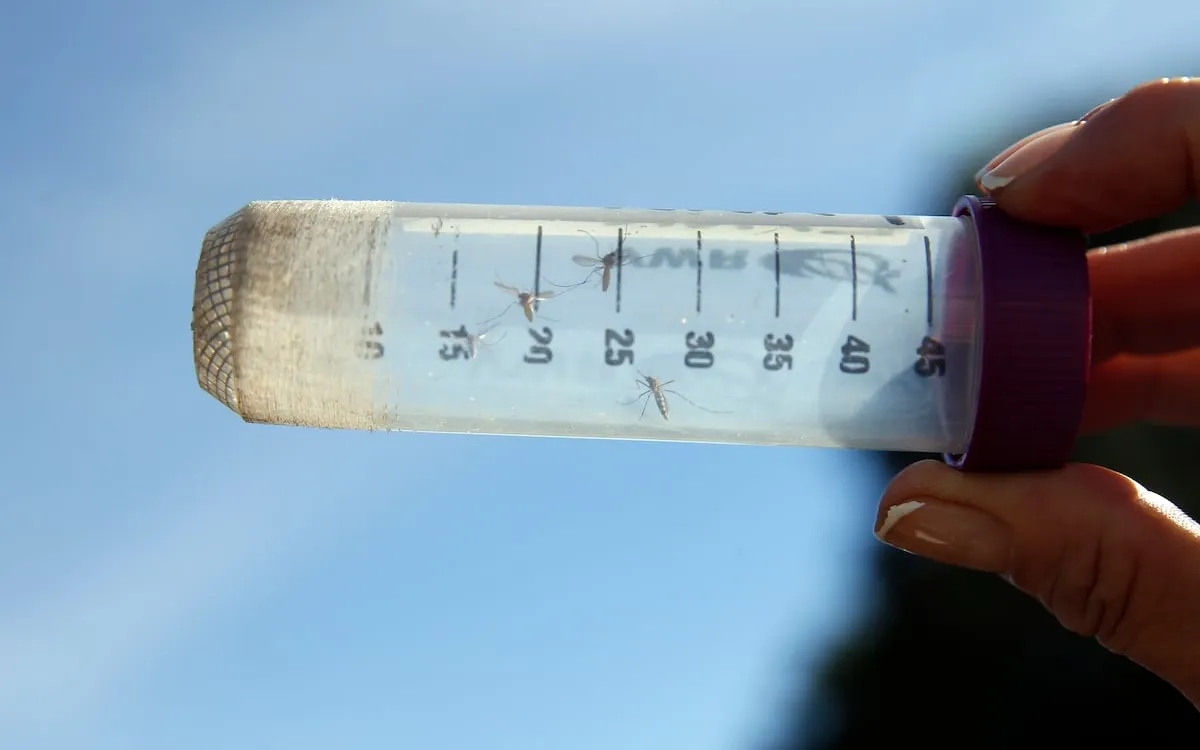
On Tuesday, state health officials announced a significant public health update: a woman in her 70s has become the first person to test positive for West Nile virus in Massachusetts this year. This case was linked to exposure in Middlesex County. Health officials are warning that the risk of exposure to the West Nile virus remains high across several communities in Massachusetts, urging residents to take extra precautions to avoid mosquito bites when spending time outdoors.
The Massachusetts Department of Public Health (DPH) confirmed the first human case of the West Nile virus in a press release, stating, “The Massachusetts Department of Public Health today announced the first human case of West Nile virus in Massachusetts this year in a woman in her 70s who was exposed in Middlesex County.” However, the press release did not specify the exact location in Middlesex County where the exposure occurred or provide details about when it took place.
According to The Boston Globe, mosquitoes capable of carrying the West Nile virus began testing positive in Massachusetts as early as June 17. A month later, a goat in Lunenburg became the first animal to test positive for the virus in the state this year. By August, the risk of exposure to the West Nile virus in Boston was raised to “high” after multiple mosquito samples, including those from Hyde Park and West Roxbury, tested positive.
Public Health Commissioner Robbie Goldstein emphasized the seriousness of the situation, stating, “West Nile virus can be a very serious disease and its presence in mosquitoes remains high right now in Massachusetts.” Despite the cooling weather, Goldstein noted that the prevalence of the West Nile virus among mosquitoes will likely remain elevated for some time.
The DPH reported that there have been over 300 positive mosquito tests across 12 of the state’s 14 counties. In the past month, the risk of contracting the West Nile virus has been notably elevated in several areas, including Acton, Bedford, Billerica, Boston, Brookline, Carlisle, Chelmsford, Dracut, Lowell, and Newton. In 2024, Massachusetts recorded 19 human cases of the virus, according to the DPH dashboard.
The Massachusetts Health Department advises residents to take specific actions to reduce their risk of exposure to the West Nile virus. Applying mosquito repellent containing an EPA-registered ingredient like DEET or oil of lemon eucalyptus is highly recommended. Additionally, residents should avoid outdoor activities during early mornings and evenings when mosquitoes are most active, and consider wearing long sleeves and pants to minimize the risk of bites.
The DPH warns that the hours from dusk to dawn are peak biting times for many mosquitoes. Even as we transition from summer to fall, state epidemiologist Catherine M. Brown stated, “The mosquitoes will be with us until the first hard frost.”
For further inquiries, Claire Thornton can be reached at claire.thornton@globe.com. Follow Claire on X @claire_thornto for more updates on public health news.